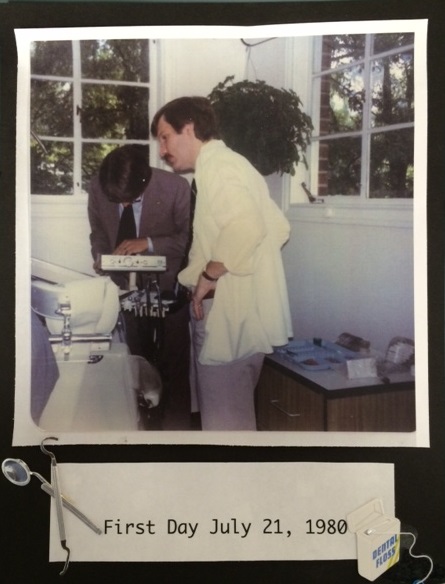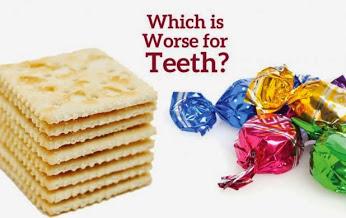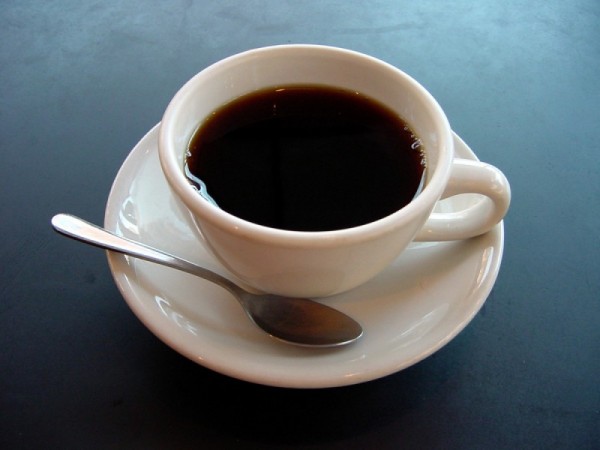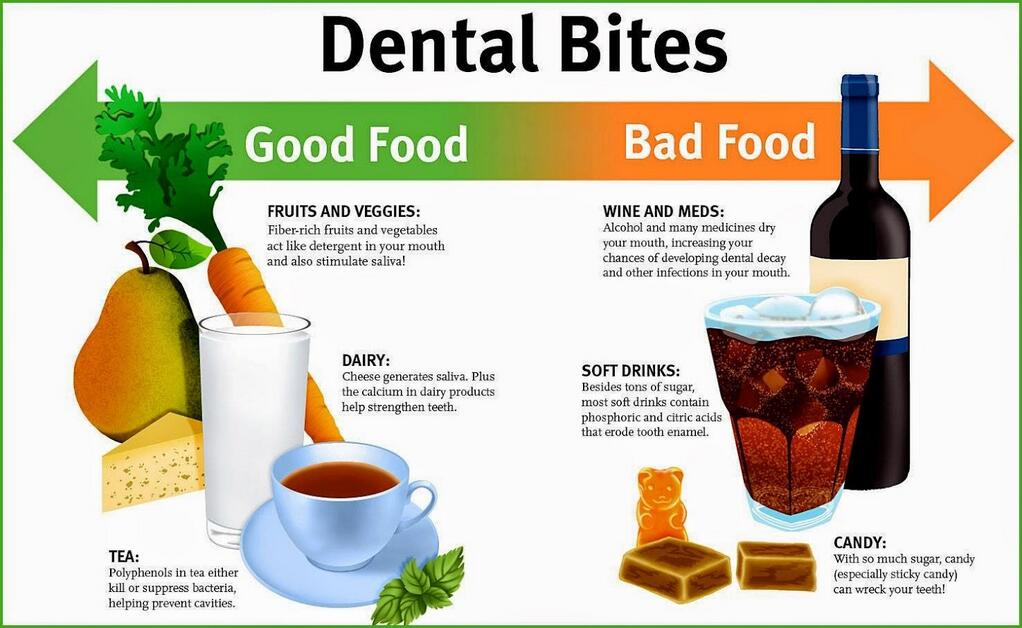Our Blog
Which is worse for teeth, saltines or candy?
July 22nd, 2014
So, which is worse for your teeth?
It might seem like candy is the obvious answer, but in fact, crackers or chips can be worse!
Starchy foods like crackers, chips, and white bread, tend to stay stuck in the grooves of teeth long after a meal. And while these foods are not thought of as "sweets," they all tend to include sugar in their list of ingredients. Saltine crackers are a simple starch, which means that they convert into sugar almost immediately. Cavity-causing bacteria love to feed on sugar -- no matter what the source! In turn, the bacteria produce acids that harm tooth enamel and lead to tooth decay.
One of the most harmful aspects of eating foods like crackers is that most people do not suspect that they are a cavity culprit. Eating these types of foods with a meal (instead of as a stand alone snack) will aid in their breakdown and digestion. If you are not able to brush your teeth after eating, make sure that you rinse very well with water and try using a toothpick to dislodge any particles that are stuck in your teeth.
Parents should also take heed when it comes to their children's snacks. Some of those go-to crackers may be an unintended source of decay! Try more complex carbohydrate snacks like nuts, fruit slices, or cheese, which won't stay lodged in teeth grooves all day long.
Coffee extract has potential to improve oral health
July 17th, 2014
Brazilian researchers have discovered some exciting properties of coffee extract from Coffea canephora, a type of coffee bean found in Brazil in Vietnam and commonly known as Robusta. In a published study, researchers found that the coffee extract had an anticariogenic, or anti-cavity causing effect.
Researchers grew biofilms on extracted baby teeth by using bacteria found in saliva samples. Dental plaque is a complex biofilm that naturally occurs on teeth; when not properly removed, plaque leads to tooth decay and gum disease.
These teeth were then treated with either coffee extract, chlorhexidine (a known dental antimicrobial), or Milli-Q water (ultra-pure laboratory grade water). The water was not effective toward reducing the amount of bacteria, while the coffee extract and chlorhexidine had similar effects in reducing plaque bacteria and promoting mineralization.
The coffee extract significantly decreased the number of colonies of Streptococcus mutans, which is the main cavity-causing bacteria found in plaque. In addition, the teeth treated with coffee extract had higher values of microhardness, which indicates an increase in remineralization of the tooth enamel.
So how does this apply to everyday life? Well, more research is still needed to fully understand the potential of coffee extract. However, drinking strong, black coffee in moderation may may help reduce plaque. It is important to note that heavy coffee consumption may lead to stained teeth and acid erosion of enamel due to the acidity of coffee. In addition, if you add cream and sugar to your coffee, then any of the anti-cavity properties are cancelled out. But overall, there is a known positive correlation between coffee consumption and oral health: coffee decreases plaque deposition and lowers counts of cariogenic bacteria like S. mutans.
There is much potential to use extract from Coffea canephora in dental products in the future. Who knows, one day it may be as common as the fluoride found in toothpastes and mouthrinses!
Happy Good Food For Your Teeth Month (aka June)!
June 2nd, 2014
Say what? Well, certain foods and drinks are recognized every month and designated "National _____ Month." The month of June just happens to be
- National Fresh Fruit and Vegetables Month
- National Dairy Month
- National Iced Tea Month
among other things! Did you know that some of the best foods for your teeth are vegetables, fruits, and dairy products like cheese and yogurt. The beverages that help make your teeth healthy include milk and tea! So with all this celebrating of these foods and drinks this month, you can help your teeth be better than ever!
So what are the benefits? Fruits and vegetables are full of fiber and their texture helps to scrub the surfaces of your teeth, which removes plaque. The chewing process associated with these fiber-rich foods also stimulates saliva, which is a natural protector against acids and sugars. Dairy products contain calcium that helps to strengthen your teeth; and cheese specifically is known to stimulate salivary glands. As for tea, while drinking excessive amounts of tea can lead to teeth staining, moderate consumption is beneficial due to the polyphenols in tea that protect against cavity causing bacteria.
We know you've heard it before, but it never hurts to be reminded that sugary candy and soft drinks can wreck your teeth! Sticky candies make sure that sugar stays stuck on your teeth and soft drinks bathe your teeth in sugar and acids. Some less recognized cavity culprits are wine and medications, which can lead to dental problems in a less obvious way: wine and medications dry out your mouth. Without adequate salivary flow, your mouth lacks the natural protective properties of saliva and is at greater risk of tooth decay and infections.
Oh, and I guess we can't go without mentioning that it does happen to be National Candy Month, too... No joke. Hopefully all of the great choices between fruits, vegetables, dairy, and tea will outweigh any candy that you do consume! Just make sure that you rinse well with water after eating candy and stick to your oral care routine, and I guess we'll give you a pass this month! ;)






